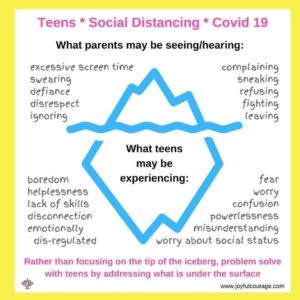Engaging with young people during Lock Down

 Like all of us, young people have been dramatically affected by social isolation. School closures happened pretty much overnight, GCSE and A-Level exams were cancelled, and social activities were suddenly banned.
Like all of us, young people have been dramatically affected by social isolation. School closures happened pretty much overnight, GCSE and A-Level exams were cancelled, and social activities were suddenly banned.
In modern society, it may seem like these changes are exactly what young people have been looking for: No school, a relaxed timetable (getting up mid-morning), and everything being driven by social media and accessible through their phones. But its probably a case of “be careful what you wish for” for most of them, as rapidly the reality of being stuck at home with parents and siblings starts to sink in.
For those of us in youth ministry we’ve had to make a rapid change to the way we do things – taking to social media to stay in contact, creating content and posting regularly. We’ve also experimented with online platforms like ZOOM to try to maintain our youth groups. For those churches where we might have just a handful of young people in or around our congregations the thought of trying to do all or some of these things might seem quite daunting!
So here are a few tips and tactics for connecting and supporting with young people during the Lock Down whether you have 100 young people in your church, or just 1!
Relationship Not Entertainment
Its very easy to think we suddenly need to be expert YouTubers or Social Media Influencers, posting amazing content which will go viral! Lets be honest, none of us can compete with the ”professionals”, and we shouldn’t want to. Young people can find plenty of entertaining content out there, and there’s no predicting what is going to be come cult and what isn’t.
What young people need more than anything is relationships – strong positive role models that are authentic and available for them. More than ever we need to worry less about quantity and think about quality – it doesn’t matter if you only get 2 followers on Instagram, if for those 2 you are providing a lifeline of emotional and spiritual support.
Be honest about emotions
Young people are anxious and scared – whether that’s about their own health, their family members (especially if they have parents who are essential workers, or vulnerable grandparents), or what’s happening about their education. Like all of us, the prospect of months of social isolation from their friends is daunting. During adolescence friends are often thought of as the only people that understand what your feeling. Creating space to be honest and vulnerable about how we’re feeling, listening to each other and re-iterating that its OK to be not OK is really important.
For those young people who are getting additional emotional support – either through school pastoral teams or via Children and Adolescent Mental Health Services – they will be suffering the loss of these avenues. Of course, we aren’t all trained mental health professionals but we can offer a safe space to talk.

We’ve been crying out for a change of pace!
Probably the single most recurring message in ministry over the last few years has been a call to slow down. Ranging from Evangelicals like John Mark Cromer to new-monastics there have been plenty of resources encouraging us to end hustle and combat hurry. Youth culture, forever at the forefront, is no different and Christian young people have felt the tension between face-paced living and stillness.
The current situation lends itself perfectly to experimenting with, and enjoying, a slower more contemplative way of life. We may contradict the messages from school in some of this (so be careful) but the reality is that school-work set to do at home is not going to fill every hour of the day, and the teachers know that! Encourage young people to take time out – enjoy the garden, go for their one permitted walk each day, slow down a bit, listen to their favourite music, bake a cake, build a den (even the 15 year olds!).
Reflect/Pause/Pray
While they are experimenting with a slower pace, helping them turn away from scrolling on Instagram or Snapchat and connecting with God is key. Don’t feel you need to be creating new ideas for this – there’s plenty of resources out there, including taping into some of the excellent content produced by other Youth Ministers across the Diocese (more links, hints and tips next time).
In times of crisis, people often become more spiritually aware, and young people especially will be looking for meaning and connection on a deeper level. Again its more important to help them explore this than focus on entertaining them – simply lighting a candle, picking a freshly bloomed flower or watching bubbles disappear can spark deep thoughts and conversations.
Encourage Physical Exercise
The links between mental, spiritual and physical health have been well documented, and being stuck at home shouldn’t be a barrier to maintaining a good physical health routine. Getting out of the house for a walk, or even into the garden to kick a football or bounce on the trampoline is so important to well-being. There are other great online resources for this too – the country is falling in love with Joe Wicks, but do check out the Active Faith daily challenges from our friends at PSALMS.
PRAY FOR THEM
Whatever level you’re at with supporting young people in your church, don’t forget to pray for them, and get your prayer networks involved too! Perhaps you could ask the young people to put together a list of their prayer requests (anonymous if that helps) to ask older members of the congregation to pray for and vice versa. Social Isolation does not mean the end of community, and community is always all-age.
Barrie Voyce is Director of illuminateStroud, which aims to empower, equip and inspire young people to be culture changes in their schools and communities. He has been working in youth ministry for over 15 year, and leads the Diocese Life Priority Group for Youth Work.
illuminateStroud is part of The Door Youth Project
